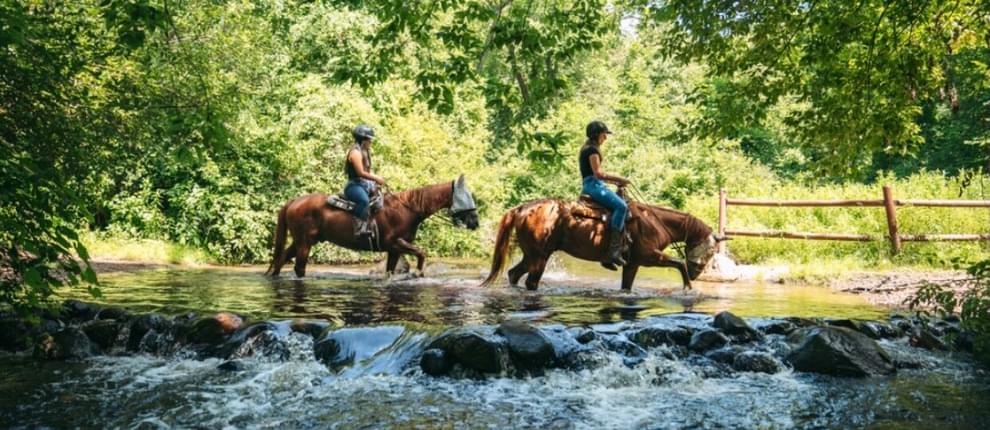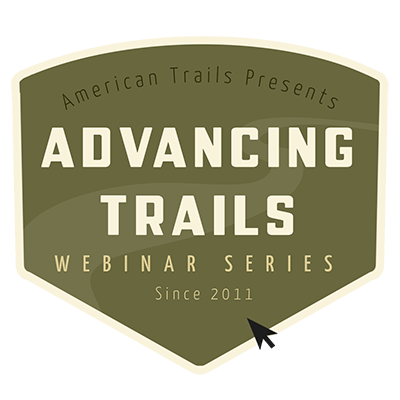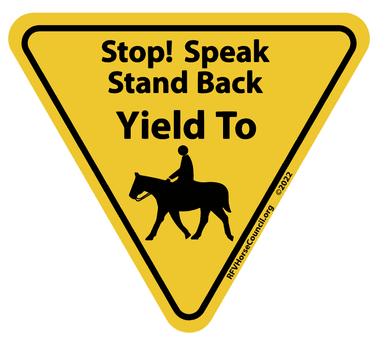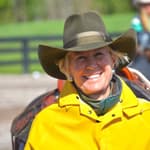




Subscribe to our mailing list for notifications on our latest trainings.

Learn how to practice, promote, and share the Trails Safe Passing Plan (TSPP) of Stop! Speak and Stand Back and how this safety action plan can be used on your websites, offered to trail user groups during meetings, delivered to land management teams for public safety announcements and used at trailheads and kiosks.
Presented by:
** This event has passed **
March 30, 2023
10:00 AM to 11:00 AM (Pacific Time) {more time zones}
Cost (RECORDING):
FREE for membersNote:
Closed Captioning is available for this webinar.
Learning Credits are available for this webinar.
This webinar is free. Would you consider a donation to support this webinar?

The Trails Safe Passing Plan (TSPP) STOP! SPEAK and STAND BACK is a safety action plan for ALL trail users on what to do when meeting people with horses on the trails.
The Trails Safe Passing Plan (TSPP) Stop! Speak and Stand Back allows you to safely share the trails and is helpful for all trail users, including horses and dogs. Many trail users may not know what to do when meeting horses on the trails. Anecdotal evidence suggests trail users are not interested in making a passing plan with strangers, or they don’t want to wait until a horseback rider is near enough to communicate instructions.
It is best to know what to do, BEFORE you encounter other trail users. The TSPP sign, the QR Code, the PowerPoint, and PDF of the Trails Safe Passing Plan (TSPP) Stop! Speak and Stand Back have been produced as educational resources for trail users to navigate our trails safely and efficiently. The webinar provides information about yielding on trails, trail communication, and facts about horses to help all trail users and land management teams understand the importance of having a trails safe passing plan in place at trailheads and kiosks.
Trails are Common Ground * and we all have the opportunity to help make the trails enjoyable and safe for everyone. Our goal is to show how learning and performing these actions can inform trail users on what to do when meeting horses on the trail. When a trails safe passing plan is posted, every trail user can discover how to become a safer trail user. When a trail safe passing plan is not posted, many trail users are not comfortable on shared trails. People with horses often choose not to use the trails, due to possible injury risk.
In recreational land use, as stakeholders, we must encourage land management teams and trail groups to participate in inclusive recreation opportunities. We believe that the Trails Safe Passing Plan (TSPP) Stop! Speak and Stand Back and our new TSPP Sign with a QR Code (that can include a local sponsor logo) will be a win-win for recreational land management teams and all trail user groups.
Please join us for this important webinar and learn how practicing, promoting, and sharing the Trails Safe Passing Plan (TSPP) of Stop! Speak and Stand Back can help our trails be safer and more inclusive for everyone.
*Information on Trails are Common Ground link https://trailsarecommonground.org/
Learning and practicing the Trail Safe Passing Plan (TSPP) of Stop! Speak and Stand Back allows trail users to safely share the trails. Discover the many reasons WHY this plan is so helpful for ALL trail users, including for dogs and horses.
This educational resource, Trails Safe Passing Plan (TSPP) Stop! Speak and Stand Back has been published by the Equine Land Conservation Resource. ELCR is working with the Trails are Common Ground (TaCG) campaign and has shared this educational resource with TaCG.

This webinar qualifies as a Health, Safety, and Welfare (HSW) course (via LA CES).
Jenny Cook, Michigan Equine Trails Representative, Michigan Trails Advisory Council
Kalamazoo, Michigan

Living in Michigan with its diverse seasons, terrains, and waterways, Jenny Cook has had wonderful opportunities to enjoy nearly every outdoor recreation activity. As an owner and operator of bikes, boats, camping gear, fishing equipment, hiking, horses, hunting equipment, off-road vehicles, skis, and snowmobiles she understands and respects every trail user group and realizes they each have their own goals and priorities.
Jenny is thankful and honored to be appointed and reappointed by the Michigan Governor for two advisory council positions as the Michigan Trails Advisory Council Equestrian Representative (MTAC) and the SW Michigan Equestrian Trails Subcommittee Representative (ETS) where she represents horses and people with horses to all Michigan public land managers and all trail user groups. The MTAC is comprised of representatives from every outdoor recreation activity.
As an educator, Jenny has implemented a “Horse Course” at four middle schools in Kalamazoo, Michigan. Jenny has enjoyed shoreline horseback riding in Florida, Hawaii, Indiana, Michigan, and Mexico and introduced shoreline horseback riding at both Indiana Dunes National Park and the State of Michigan Parks.
It is Jenny ‘s pleasure to help introduce the benefits of horses for people.
Jenny has camped and competed with her horses throughout Michigan and beyond as the National and State of Michigan Competitive Mounted Orienteering Champion Team Member. Jenny has participated in 4H, Pony Club, endurance rides, fox hunts, therapeutic and leisure trails rides. Jenny has witnessed and discovered the health benefits that therapy horses provide for people by volunteering at the Cheff Therapeutic Riding Center in Augusta, Michigan.
Karin Reid Offield, President, Roaring Fork Valley Horse Council
Aspen/Snowmass, Colorado

Born in Aspen Colorado, Karin spent decades riding horses learning to jump, play polo, barrel race, and it was in the Roaring Fork Valley where she learned how to go out on trail rides to have fun and come back safely.
Karin began riding horses and competing as a child and made equestrian sports her life. From competing on the international stage in dressage and winning national jumping championships, to horsemanship, reining, roping, and racetrack colt starting, creating children’s riding programs and building world-class equestrian facilities, Karin has an intimate and vast knowledge of the equine industry. Karin is now the President of the Roaring Fork Valley Horse Council and helps the membership and Board foster a sustainable, generational community.
Karin was the Co-Owner and builder of the famous El Rojo Grande Ranch, in Sedona Arizona. El Rojo Grande was a 176 - acre community equestrian center featuring trail rides, stagecoach rides, a vaulting school for kids, working student programs, roping and riding programs, a two-acre park to host weddings and community events for 500 people and a small commercial store for the tourists and townspeople specializing in art-to-wear and ranch souvenirs. The ranch was sold in 2004, but in 2018 under new ownership, the ranch was threatened by a new interested buyer to become a home to 600 manufactured homes. Karin received a phone call from the Sierra Club and began to build the website www.elrojograndesedona.com to fight against the development. Together with the community leaders and townspeople, in February 2019, the communities wish for no development prevailed, and Karin’s website was credited as the vehicle that brought the community together for success. The ranch is now under private ownership.
We are offering closed captioning for our webinars, thanks to a partnership with VZP Digital. If you are in need of this service, please email us prior to the webinar. An unedited transcript will be sent to all attendees following the webinar.
American Trails is proud to be a certified provider of the following learning credits and continuing education opportunities:
Learning credits are free for attendees for American Trails webinars and the International Trails Symposium, as well as for other conferences, webinars, and workshops we offer credits for. Learn more here.
While we may individually agree (or disagree) in whole or in part with any or all of the participants, the views expressed in these webinars are not necessarily representative of the views of American Trails as an organization or its board and staff. Unless specific situations are noted by presenters, nothing in American Trails webinars should be considered to be interpreted as a standard.
By registering for our webinars, you submit your information to the webinar organizer and associated presenters and sponsors, who may use it to communicate with you regarding this event and their other services. Your organization may also be added to the American Trails Business Directory. You can easily cancel your registration at any time.
1,775 views • posted 02/02/2023
